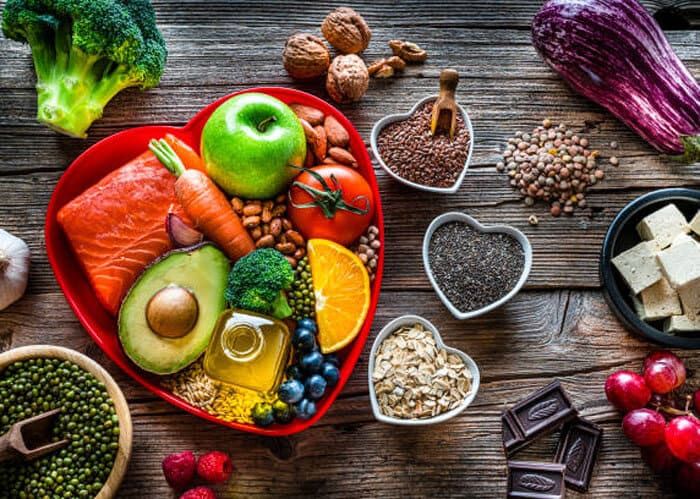
DASH diet for Hypertension

In India, more than a billion individuals suffer from high blood pressure, and the number is growing. Indeed, the number of individuals with high blood pressure has more than quadrupled in the last 40 years, which is a severe public health problem.
Because nutrition is known to have a significant role in the development of high blood pressure, scientists and policymakers have developed specialised dietary recommendations to aid in its reduction. This blog looks at the DASH diet, which was created to help patients with high blood pressure lower their risk of heart disease.
DASH, or Dietary Approaches to Stop Hypertension, is a diet that is advised for persons who wish to avoid or cure hypertension, often known as high blood pressure, and lower their risk of heart disease. The DASH diet prioritises fruits and vegetables, healthy grains, and lean proteins. The diet was developed after researchers discovered that people who ate a plant-based diet, such as vegans and vegetarians, had considerably lower blood pressure. As a result, the DASH diet emphasises fruits and vegetables while including lean protein sources such as chicken, fish, and legumes.
Scientists believe that one of the key reasons this diet can assist patients with high blood pressure is that it reduces salt intake. The DASH diet programme recommends no more than 1 teaspoon (2,300 mg) of salt per day, which is consistent with most national recommendations. The sodium limit for the low-salt variant is 3/4 teaspoon (1,500 mg) per day.
Potential Advantages
Aside from lowering blood pressure, the DASH diet has a variety of potential advantages, including weight loss and a lower risk of cancer. The diet has a variety of effects on your body.
Reduces blood pressure
Blood pressure measures the force exerted on your blood vessels and organs as blood flows through them. It is divided into two numbers: The pressure in your blood vessels while your heart beats. Diastolic pressure refers to the pressure in your blood vessels between heartbeats while your heart is at rest. Adults should have a systolic pressure less than 120 mmHg and a diastolic pressure less than 80 mmHg. This is typically expressed with the systolic blood pressure higher than the diastolic blood pressure, as in 120/80. High blood pressure is defined as a blood pressure value of 140/90 or above.
In trials, participants on the DASH diet had reduced blood pressure even if they did not lose weight or limit their salt intake. When salt consumption was decreased, however, the DASH diet reduced blood pressure even more. In fact, people who consumed the least salt had the biggest decreases in blood pressure. These low-salt DASH diet outcomes were most dramatic in patients who already had high blood pressure, lowering systolic and diastolic blood pressure by an average of 12 mmHg and 5 mmHg, respectively. This is consistent with earlier studies that show that limiting salt intake helps lower blood pressure, particularly in people with high blood pressure. Remember that lowering your blood pressure does not necessarily translate into a lower risk of heart disease.
Weight loss may be facilitated
Whether or not you lose weight, the DASH diet is likely to reduce your blood pressure. If you already have high blood pressure, you've probably been told to reduce your weight. This is due to the fact that the heavier you are, the higher your blood pressure is going to be. Losing weight has also been demonstrated to reduce blood pressure. According to certain research, the DASH diet can help people lose weight. Those who have lost weight on the DASH diet, on the other hand, have been in a managed calorie deficit, which means they were advised to eat fewer calories than they were burning. Because the DASH diet eliminates many high-fat, sugary meals, people may automatically lower their calorie consumption and lose weight. Others may have to intentionally limit their consumption.
Other potential health advantages
DASH may also have an impact on other aspects of health. Dietary Guidelines:
Regular Values Footnote On certain food labels, daily figures for diets of 2,000 and 2,500 calories per day are included.
Reduces cancer risk: According to a recent study, participants who followed the DASH diet had a decreased risk of some malignancies, including colorectal and breast cancer.
Reduces your risk of metabolic syndrome: According to some studies, the DASH diet can cut your risk of metabolic syndrome by up to 81%.
Diabetes risk is reduced: The diet has been linked to a lower risk of type 2 diabetes. Some studies show that it can also improve insulin resistance.
Reduces the risk of heart disease: Following a DASH-like diet was associated with a 20% reduced risk of heart disease and a 29% lower risk of stroke in one recent study of women.
The high fruit and vegetable component of the diet is credited with many of these beneficial properties. Eating more fruits and vegetables can help minimise illness risk in general.
However, keep in mind that, while the DASH diet can be quite beneficial, you should always check with a nutritionist or Dr. Sudheer before making any substantial changes to your diet. Maintaining a healthy diet is just half of the battle against hypertension. Testing and monitoring are both critical components of effective hypertension therapy.
Citizen Speciality Hospital offers the most affordable hypertension testing. Our cutting-edge diagnostic laboratories provide speedy and precise results, allowing you to keep on top of your health.






